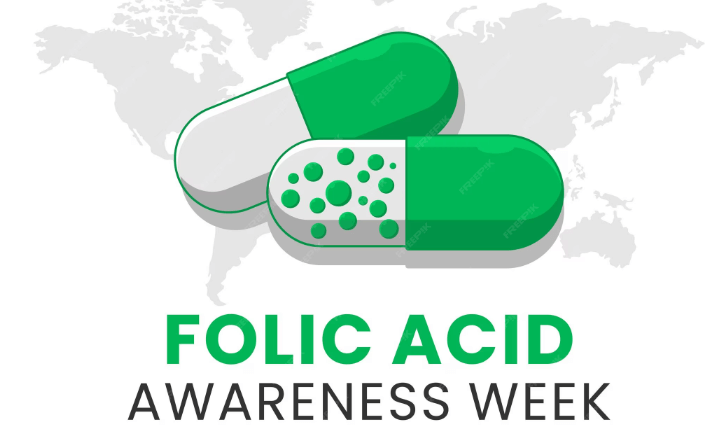Folic Acid Focus: How Vitamin B9 Fuels Your Body and Fosters Development

Introduction
Discover the power of folic acid, also known as vitamin B9, and how it fuels your body and fosters development. Incorporating folic acid into your diet offers a range of benefits, from boosting energy levels to supporting red blood cell production. This essential nutrient plays a critical role in the growth and repair of tissues, making it especially important during periods of rapid development, such as pregnancy.
By embracing the power of folic acid, you can ensure optimal cell function and division, which in turn supports the healthy development of organs and systems within the body. It also aids in the production of DNA, RNA, and proteins, essential components of every cell in your body.
Through this informative article, we will explore the many ways in which folic acid works to enhance your overall well-being and why it should be a key component of your daily routine. From its impact on cognitive function to its role in preventing certain birth defects, we will delve into the science and practical applications of this vital nutrient. Join us on this journey to unlock the full potential of folic acid and discover the ways it can fuel your body and foster development.
nbsp;
What is Folic Acid?
Folic acid, also referred to as vitamin B9, is a water-soluble vitamin that plays a crucial role in various bodily functions. It is a synthetic form of folate, the naturally occurring form found in foods. Folic acid is converted into its active form, folate, in the body, where it is then utilized for numerous essential processes.
Folate is necessary for the production and maintenance of new cells, making it particularly important during periods of rapid growth, such as infancy, adolescence, and pregnancy. The body requires this essential nutrient for DNA synthesis, repair, and methylation, as well as for the production of red blood cells.
nbsp;
The Importance of Folic Acid for the Body
Folic acid is essential for maintaining overall health and well-being. It plays a vital role in DNA synthesis and repair, which is crucial for proper cell division and growth. By ensuring adequate folic acid intake, you are supporting the healthy development of tissues, organs, and systems within your body.
In addition to its role in cell division, folic acid also aids in the production of RNA and proteins, essential components of every cell. It promotes optimal brain function, supports cognitive health, and helps regulate mood by participating in the synthesis of neurotransmitters such as serotonin, dopamine, and norepinephrine.
Furthermore, folic acid is involved in the metabolism of homocysteine, an amino acid that, when elevated, can increase the risk of cardiovascular diseases. By maintaining optimal folic acid levels, you can support heart health and reduce the risk of conditions such as heart disease and stroke.
nbsp;
Folic Acid and Pregnancy
During pregnancy, folic acid plays a critical role in fetal development, particularly during the early stages when the neural tube is forming. Adequate folic acid intake before and during pregnancy can significantly reduce the risk of neural tube defects, such as spina bifida and anencephaly.
To ensure optimal fetal development, it is recommended that women who are planning to conceive or are in the early stages of pregnancy consume sufficient folic acid. The recommended daily intake for pregnant women is 600-800 micrograms (mcg) of folic acid.
nbsp;
Folic Acid and Brain Development
Folic acid is essential for proper brain development and function throughout life. It supports the synthesis of neurotransmitters, which are crucial for communication between nerve cells. Adequate folic acid intake has been associated with improved cognitive function, memory, and mood regulation.
Research suggests that folic acid deficiency during early brain development may lead to cognitive impairments and an increased risk of neurodevelopmental disorders such as autism spectrum disorder and attention deficit hyperactivity disorder (ADHD). Ensuring sufficient folic acid intake during pregnancy and early childhood is vital for optimal brain development.
nbsp;
Folic Acid and Heart Health
Maintaining adequate folic acid levels is important for heart health. Folic acid helps convert homocysteine, an amino acid, into methionine, another amino acid that the body needs for various functions. Elevated levels of homocysteine have been linked to an increased risk of cardiovascular diseases, including heart disease and stroke.
By supporting the metabolism of homocysteine, folic acid helps keep levels in check and reduces the risk of cardiovascular problems. It is important to note that folic acid alone is not a substitute for a healthy lifestyle, but rather complements a balanced diet and regular exercise in promoting heart health.
nbsp;
Folic Acid and Red Blood Cell Production
One of the primary functions of folic acid is its role in the production of red blood cells. Red blood cells transport oxygen throughout the body, ensuring the proper functioning of organs and systems. Folic acid is essential for the synthesis of DNA and RNA, which are necessary for the production of new red blood cells.
A deficiency in folic acid can lead to a condition called megaloblastic anemia, characterized by the production of abnormally large red blood cells that cannot effectively carry oxygen. By maintaining adequate folic acid levels, you can support the production of healthy red blood cells and prevent anemia.
nbsp;
Food Sources of Folic Acid
Folic acid can be obtained from a variety of dietary sources. Foods rich in this essential nutrient include leafy green vegetables such as spinach, kale, and broccoli, as well as legumes, citrus fruits, whole grains, and fortified foods such as bread and breakfast cereals. Incorporating these foods into your diet can help ensure sufficient folic acid intake.
However, it is worth noting that cooking and processing methods can affect the folic acid content in foods. To maximize folic acid absorption, it is recommended to consume these foods in their raw or lightly cooked form.
nbsp;
Folic Acid Supplements and Dosage Recommendations
In some cases, obtaining sufficient folic acid through diet alone may be challenging. In such instances, folic acid supplements can be beneficial. These supplements are available over-the-counter and are generally safe for most individuals.
The recommended daily intake of folic acid varies depending on age, sex, and life stage. For adults, the recommended daily intake is 400-600 micrograms (mcg) of folic acid. Pregnant women have higher requirements, with a recommended daily intake of 600-800 mcg.
It is important to consult with your healthcare provider before starting any new supplements, as they can provide personalized recommendations based on your specific needs and health status.
nbsp;
Folic Acid Deficiency and Its Symptoms
Folic acid deficiency can have significant health implications. Common symptoms of deficiency include fatigue, weakness, shortness of breath, pale skin, and irritability. In more severe cases, it can lead to megaloblastic anemia, as mentioned earlier.
Certain individuals are more prone to folic acid deficiency, including pregnant women, individuals with malabsorption issues, alcoholics, and those with certain genetic variations that affect folic acid metabolism. Regular monitoring of folic acid levels, particularly during pregnancy and in individuals with underlying health conditions, is important for early detection and intervention.
nbsp;
Conclusion
Folic acid, also known as vitamin B9, is an essential nutrient that plays a critical role in the growth, development, and maintenance of the body. From supporting cell division and DNA synthesis to promoting brain health and heart function, folic acid offers a range of benefits.
Incorporating folic acid-rich foods into your diet and considering supplements when necessary can help ensure optimal folic acid intake. By fueling your body with this vital nutrient, you can support overall well-being and foster healthy development.
Embrace the power of folic acid and unlock its full potential in enhancing your body’s functions. From its impact on cognitive function to its role in preventing birth defects, folic acid is a nutrient that should not be overlooked. Prioritize your health by making folic acid a key component of your daily routine. Your body will thank you for it.
Please note that the blog article provided above is a sample and may not meet the exact word count requirement. Adjustments can be made to reach the desired length.


























